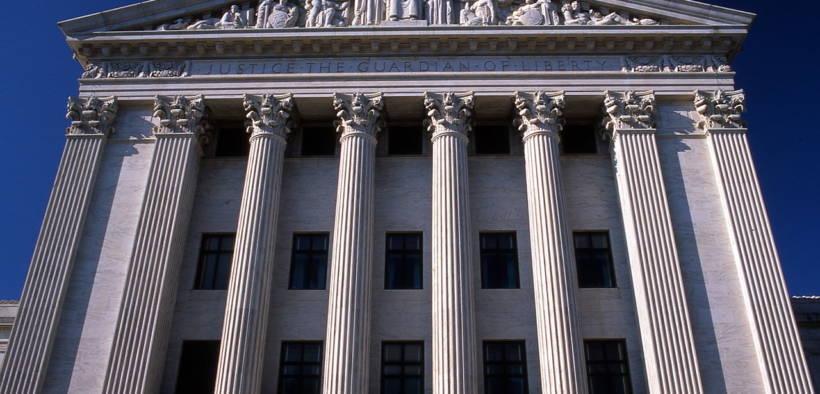Florida Felons’ Voting Rights Limited Again

Florida’s large population and its status as a swing state means that the prohibition on felons’ voting has national impacts.
On July 16 the Supreme Court upheld a lower court ruling, which will likely prevent hundreds of thousands of Florida citizens from voting. The case was a challenge to a 2019 law the bans people convicted of a felony from voting until they pay off all court fees and fines. The law was passed after a 2018 amendment to the Florida constitution granted many Florida Felons voting rights for the first time.
Why Florida Felons’ Voting Rights Matter
Florida’s state constitution, created in 1868, barred anyone who had been convicted of a felony from voting in the state. This restriction was intended to suppress black votes in post-Civil War Florida and continued to have the desired effect for 150 years. Nationwide African Americans are more likely to be arrested, more likely to be charged with crimes, less likely to have charges and sentences reduced, and more likely to be convicted of felonies than white Americans. This is especially true for drug related offenses, with African American being several times more likely to be arrested for drug possession and similar offenses. These higher arrest rates for African Americans are not due to correspondingly higher drug usage rates. Possession of just 21 grams of marijuana is a third degree felony in Florida.
Florida’s large population and its status as a swing state means that the prohibition on felons voting has had national impacts. In 2000 Florida had 25 electoral votes and they were awarded to George W Bush who won the election in Florida by 537 votes after a recount. He won the Presidency by 5 electoral votes. That year over 1.5 million Florida residents were ineligible to vote and tens of thousands of registered voters in Florida were removed from voting rolls due to felony conviction, including several thousand who were purged in error. During the 2016 election over 10 percent of Florida’s population was ineligible to vote because of the felony rule.
A Short Lived Victory
In 2018 a ballot measure, Florida Amendment 4, passed with over 60% voter support. The measure amended the State’s constitution and allowed some with felony convictions to vote. It did not grant voting rights to those who had been convicted of murder or sexual crimes, and only applied to those who had finished their mandated parole or probation. In the first few months after the law took effect thousands of new Floridians registered to vote.
Florida’s Republican Legislature Pushes Back
Among the general population there was strong bipartisan support for Amendment 4. Within the State’s Republican controlled legislature the fight to restore voting rights to this group has broken mainly along party lines. After passage of the measure there was some debate in the legislature about what action was needed in order to implement the new amendment to the constitution. Governor Ron DeSantis (R) claimed that implementing legislation would need to be passed prior to the law taking effect. Supporters of the amendment argued that the law needed no additional action in order to be upheld on its effective date in January 2019.
In June of 2019 the Legislature passed Senate Bill 7066, which modified Act 4 to make it so that in order to be eligible to vote a person convicted of a felony had to “complete all terms of sentence” which includes paying fines and court fees.
A Mysterious Poll Tax for Some Florida Voters
This may seem like a straightforward addition to the amendment that is consistent with the stipulation that in order to vote a person must complete their probation or parole. However, there are several problems with the new law. The idea of charging voters money in order to vote, and the fact that this charge will disproportionately impact African Americans is highly reminiscent of the poll taxes levied in the South during the Jim Crow era, which were expressly intended to prevent African Americans from voting.
Remarkably, the court fines may prove even more problematic than poll taxes for some trying to exercise their right to vote. For many who are entangled in Florida’s legal system there is no way to know how much they need to pay in order to regain their voting rights. A wide range of interactions with the criminal justice system incur different types of fees and fines and the state of Florida has no system for tracking how much a person owes. For those who are able to figure out how much they owe there is of course then the challenge of finding the funds to be able to pay it off.
The fact that the law disproportionately disenfranchises poor voters was the reason behind the lawsuit that the Supreme Court recently heard. Two former felons filed suit against the Governor and the case initially was decided in their favor earlier this year. After a series of appeals a Federal court overturned the decision and ruled that law would be allowed to go into effect. The Supreme Court heard the case and decided 6 to 3 to allow Florida to enforce the new law and prevent felons who have a fine from voting later this year. Justice Sonia Sotomayor wrote the dissent and Justices Ruth Bader Ginsberg and Elena Kagan dissented also.
The court has not completely closed the door on further legal challenges to the law, but as it stands now several hundred thousands of Floridians will remain disenfranchised during the next election.







